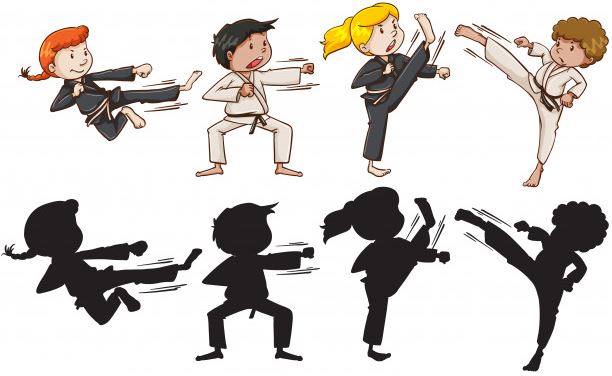
Bruce Lee once said:
“The martial arts are ultimately self-knowledge. A punch or kick is not meant to obliterate someone, but to defeat evil from your own ego, your fear, or your losses.”
The martial arts are simply a type of sport. Apart from keeping your child fit, they also teach self-control and how to make the right decisions in unpleasant situations.
Origin of the term MMA
The letters MMA stand for Mixed Martial Arts. It uses techniques from various martial arts and combat sports. It allows punching, grappling, both in standing positions and on the ground.
Howard Rosenberg, an American TV critic, coined the term in November 1993 during the first Ultimate Fighting Championship event at UFC.
Getting your child interested in MMA
Martial arts offer several benefits for children including self-discipline, physical activity and fitness, respect, the art of listening, learning how to set goals, and teamwork. They also enjoy increased self-esteem and learn the art of peaceful conflict resolution.
However, some kids are reticent about beginning a sport where they imagine people are going to punch and kick them. Parents need to know how to encourage a child to practice MMA.
1. Hold a pep talk
Explain some of the benefits associated with martial arts. Let them see that apart from learning a great deal, they will also make new friends and have a lot of fun.
2. Presentation
Provide challenges in your children’s environment. Watching television never stimulates positively and will not encourage them to discover new things. Try to get your child to participate in some more demanding activities.
As you present various exciting physical activities, include MMA too. Let him or her see what some of the basic moves are. If you detect some signs of excitement or interest, take your child to observe an MMA class.
3. Take your kid to ‘superhero training’
Children love superheroes. Spiderman, Catwoman, the Hulk, Batman, Iron Man, Superman, Wolverine, Captain America. etc. If most kids like wearing their outfits, they would love to be able to perform some of their moves. Explain to your child that in MMA classes, people run up against walls, fly around on ropes, and do karate moves.
4. Find a good teacher
There is nothing more encouraging for children than an inspiring teacher! Try to find a top athlete or physical education teacher who is also into mixed martial arts. If that person is an MMA trainer, better still. Ask them to talk to your child about the benefits of martial arts.
5. Throw a gym party
Let the kids enjoy the gym! Throw a party with fun training. When it’s over, give them all special diplomas for participating.
While they are relaxing, let them watch an MMA expert do his or her moves in front of them and explain what martial arts are all about. If you feel up to it, you could even join in!
Children love copying their parents. If you sign up for MMA classes your child is much more likely to want to do so too. You never know, maybe within a few months the whole family is attending classes.
After your child joins
If your child decides to participate in MMA classes, your role of motivator is by no means over. Many parents fail to realize how crucial their continuous encouragement is to their children’s success.
Encouragement must continue throughout your kid’s life. This means that your enthusiastic support must be clear and evident before, during, and after every martial arts lesson. You may offer support by watching your child during training, for example.
While you are watching a training session, refrain from shouting out. It will probably cause him or her to become embarrassed, distracted, or self-conscious. If you have any concerns, talk to the teacher privately after the session.
Conclusion
Remember that as a parent, you need to be motivational but not pushy. Be careful – there is a fine line between encouraging and pushing too hard. You don’t want your child to do something simply to please you, or even worse, because of fear of disappointing you.
You are not alone in your quest to get your kid to become more physically active. Physical inactivity is a growing global problem. A few decades ago, kids played outside whenever they could. Today, smartphones, computers, and game consoles like Nintendo and PlayStation are consuming an ever-increasing proportion of children’s leisure time.
The problem with these electronic devices is that they require no physical activity. That is one of the reasons why obesity has become such a major public health concern.
